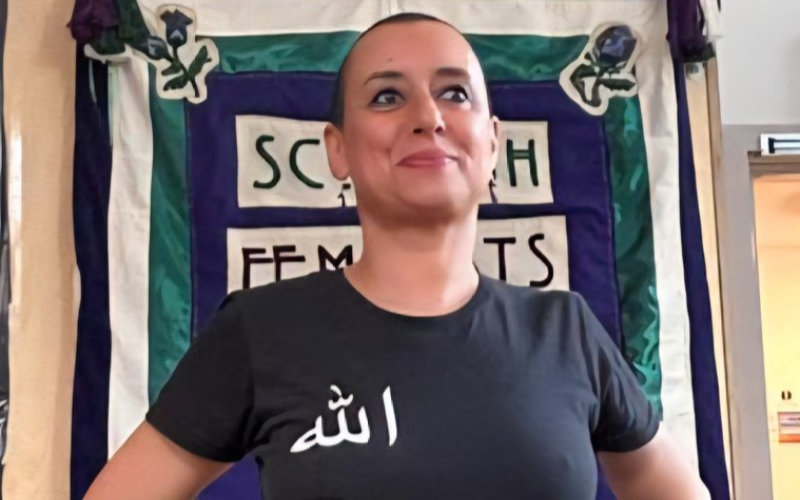Moroccan LGBTQ+ Activist Arrested Over Controversial Religious T-Shirt Sparking National Outrage

The National Brigade of the Judicial Police arrested, on Sunday afternoon, Ibtissame Lachgar, a Moroccan activist for LGBTQ+ rights, and also the founder of the Alternative Movement for Individual Freedoms (MALI), whose publication of a photo of herself wearing a t-shirt displaying a controversial phrase about religions caused an uproar among the population.
The calls from Moroccan internet users following the publication by Ibtissame Lachgar of a photo of herself wearing a t-shirt displaying a controversial phrase ("Allah is a lesbian") about religions have been heard. The National Brigade of the Judicial Police arrested her on Sunday afternoon. For the purposes of the investigation, the Moroccan activist for LGBTQ+ rights was placed in custody in accordance with the law, according to a statement from the public prosecutor’s office near the court of first instance in Rabat. She is currently undergoing the necessary preliminary investigations, with a view to being presented to the competent public prosecutor’s office.
This publication has provoked strong reactions on social media in Morocco. In the face of the controversy, Lachgar does not back down. "In Morocco, I walk around with t-shirts with messages against religions, Islam, etc. We make collages with @MALImaroc. You tire us with your pieties, your accusations. Yes, Islam, like any religious ideology, is FASCIST. PHALLOCRATIC AND MISOGYNISTIC," she fumed angrily on X. In another post, she is surprised that this phrase ("Allah is a lesbian") has earned her thousands of sexist insults, rape and death threats, and calls for murder and stoning over the past 3 days.
Reacting to Ibtissame’s controversial post that offends God, Mustapha Ramid, former Minister in charge of Human Rights (PJD), recalled that freedom of expression, even if it is extensive, cannot justify deliberately offensive remarks towards religious sanctities. He believes that this is not a simple error of expression or a personal opinion, but an intentional and premeditated offense against the deity, which engages the legal responsibility of the author. The Moroccan legal framework, in particular Article 267-5 of the Penal Code, protects the religious values enshrined in the Constitution and provides for sanctions against any attack on collective beliefs, he further recalled.
He also called on the authorities to strictly apply the law, without tolerance for those who undermine religious convictions, in order to preserve social cohesion and respect for beliefs within Moroccan society.
Related Articles
-

Morocco Tightens Grip on Weapons Trade: New Regulations Reshape Defense Industry
12 August 2025
-

Corruption Scandal: Officials Exposed in Moroccan Illegal Well-Drilling Network
12 August 2025
-

Moroccan Wife Stabs French Resident Husband After Dawn Prayer in Shocking Family Tragedy
12 August 2025
-

Airport Bust: Young Moroccans Caught Smuggling 30kg of Cannabis to France
12 August 2025
-

Global Butter Crisis: Soaring Prices Threaten Bakeries and Consumers Worldwide
12 August 2025